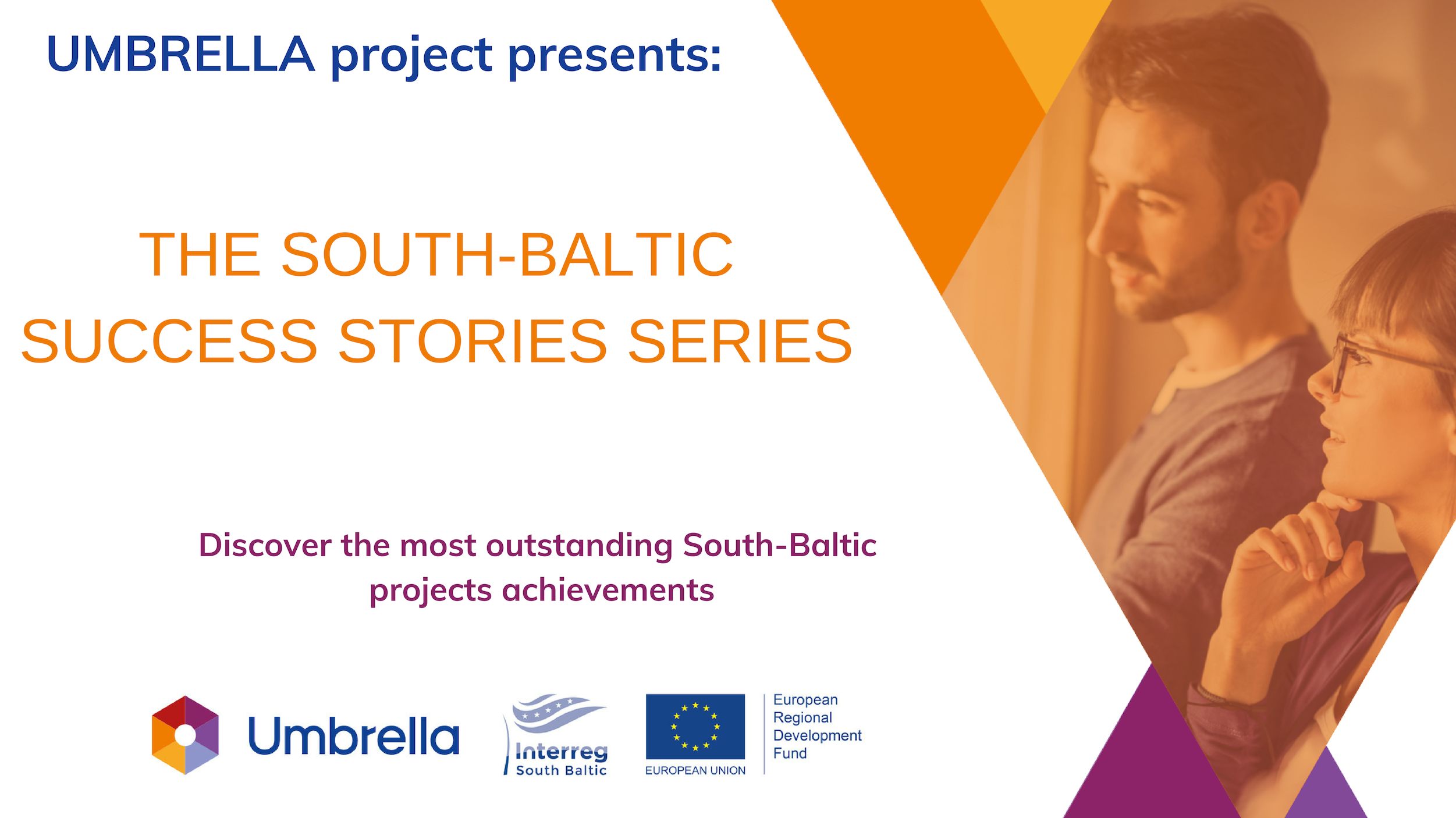
The South Baltic success story #8 – FOCUS Interreg South Baltic project.
It’s almost the end of the year, but we are not slowing down and continue to deliver South Baltic Success Stories to you. Hope you see them as a great source of inspiration!
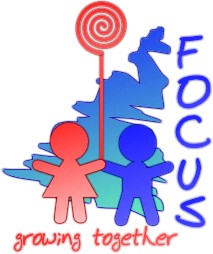
The FOCUS project is a three-year international project funded by the South Baltic Program. The project seeks to improve access to knowledge and skills and capacities in the blue-growth economy, covering marine biotechnology and coastal tourism. During the project, 11 open courses have been developed, including 6 in marine biotechnology and 5 in tourism. The experts worked on several international collaborative teams in the development of open courses. Open courses are designed and developed to meet the needs of companies in these sectors operating in the Southern Baltic region, as identified through a survey of employers regarding the competencies of those working in the companies.
The project idea has attracted a wide range of partners to work together, thanks to the positive evaluation of the experts of the South Baltic region program: University of Gdańsk (Poland), University of Linz (Sweden), Roskilde Business School (Denmark), Lithuanian Business College
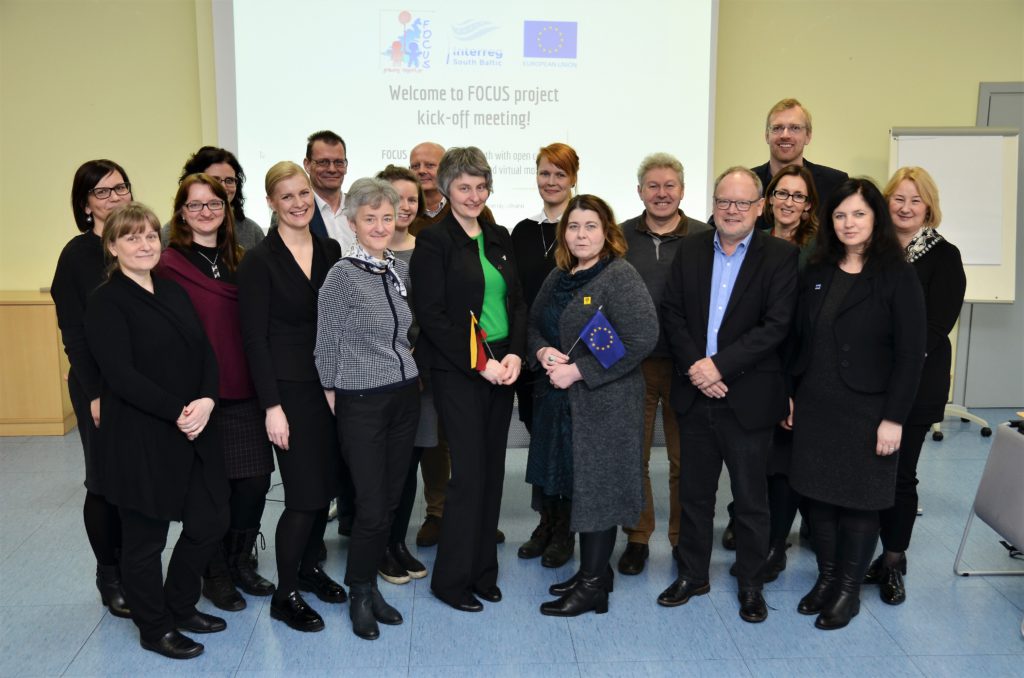
There are currently six courses available on marine biotechnology:
- Blue Biotechnology for YOU,
- Blue-Based Solutions,
- Code of Conduct Biotechnology,
- MNPs Toolbox,
- Marine Natural Products,
- Sustainable Blue Economy.
In addition to five open tourism online courses:
- Hospitality,
- Sustainable Tourism Development,
- Innovation Leadership in Tourism Sector Organization,
- Management and Planning Tourism Business,
- Products and Service Development and Marketing.
Sign up at http://focusproject.eliademy.com/ with one of your social networking accounts or create a personal account on Eliademy.com. A certificate is issued after completion of each course.
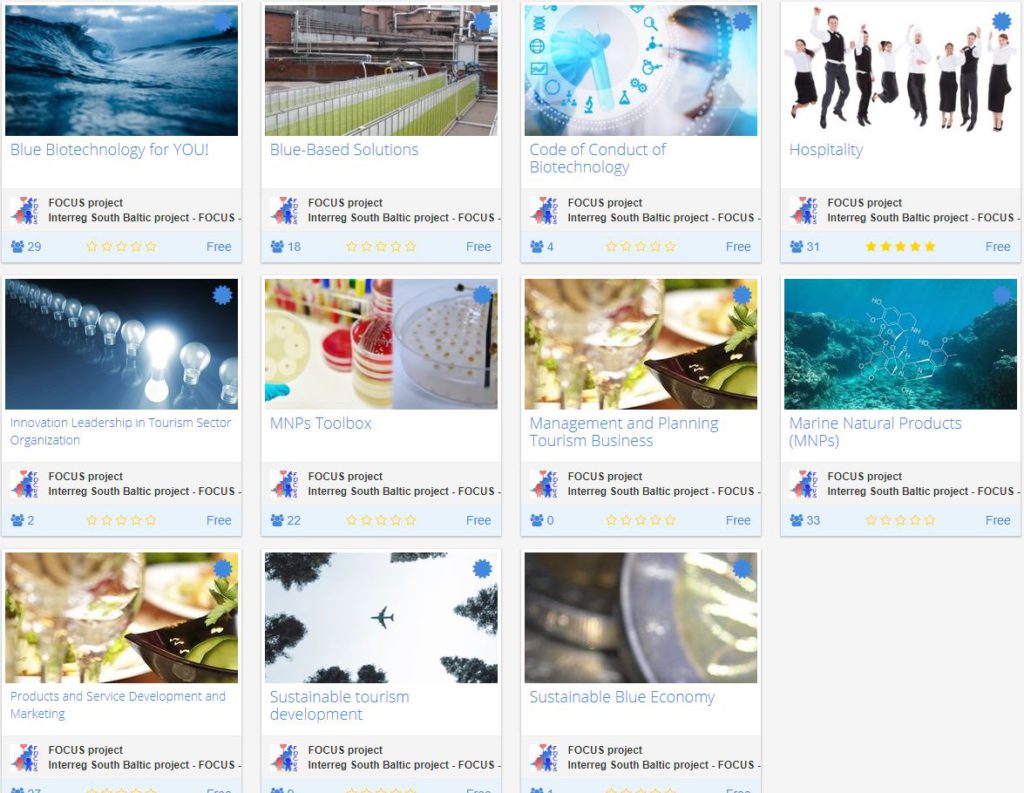
Open online courses were developed through the INTERREG South Baltic Program project FOCUS – Developing Blue Growth Competencies through the development of open courses and the use of MTT products and virtual mobility.
– All partnership, contacts
Lead partner: Klaipeda University, main contact doc. dr. Dalia Baziukė dalia.baziuke@ku.lt
Partners:
Lithuanian Business University of Applied Sciences (Lietuvos verslo kolegija)
Linnaeus University, Sweden
University of Gdansk, Poland
Roskilde Business College, Denmark
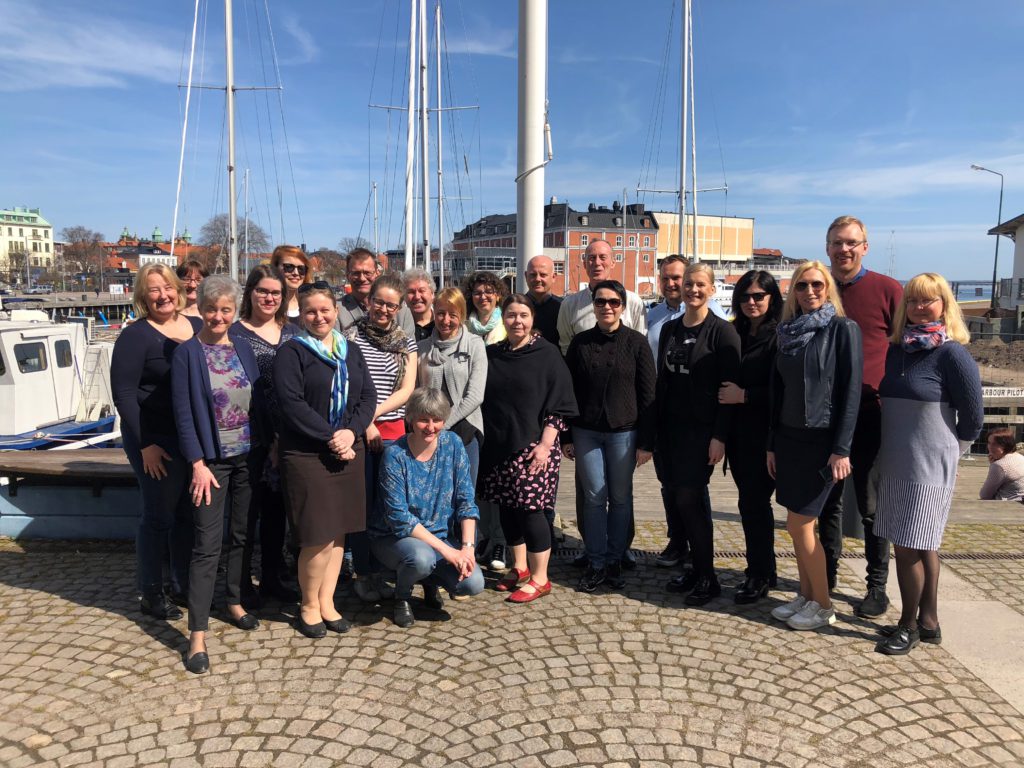
Target groups of the project
FOCUS target both undergraduate/graduate students and employed professionals in need of lifelong learning. VMP will act towards the wider continuous learning/training environment and well-prepared professionals in Blue Growth sector companies in the South Baltic Region.
Slogan
FOCUS – growing together
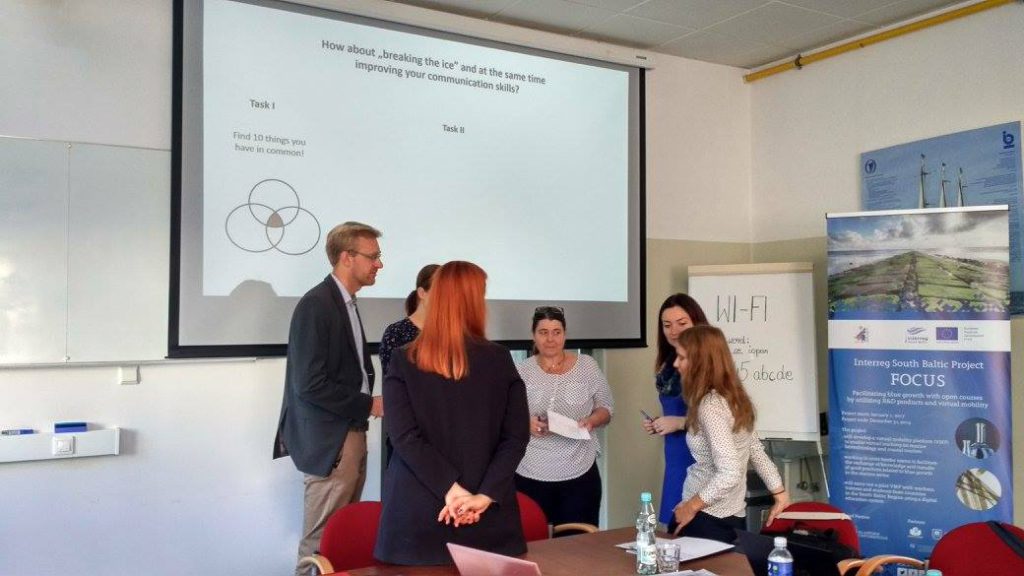
Interview with FOCUS project representative.
-
Please introduce yourself. What is your name, surname? Where do You work and who do You work as?
My name is Devender Kumar. I am from India. I just finished my graduation in Tourism and Entertainment Management in Klaipeda, Lithuania. I do not work for now. I plan to do a Masters in Tourism now.
-
How did You find out about the FOCUS courses?
One of my teachers told me about this course so I thought of doing it to improve my knowledge.
-
What are Your impression of the course content (novelty, relevance, international experience, etc.), learning environment (environment’s user interface, provision of course materials and activities, etc.), and the learning process (self-pacing mode, feedback, etc.)? Could You describe Your experience in a few sentences?
The format of the course is well-tailored. This course gives a detailed knowledge in an easy and understandable way and the content is to the point. It was very useful for me as I did my thesis in Sustainable Tourism in Seaside Regional Park so I gained a lot of knowledge which helped me to write my thesis.
This course is easy to understand and provides almost all the required information. Course material is of high quality covering almost all aspects. One of the good thing about this course is that there is no deadline so I was able to do it slowly at my own pace whenever I got free time to do this study. It helped me a lot in my study process.
I recommend everyone to try it and I am sure they will gain a lot from this course.
-
How did passing this course help / will help You in Your work/job?
Passing this course gave me a lot of knowledge regarding Sustainable tourism which I implemented to write my thesis.
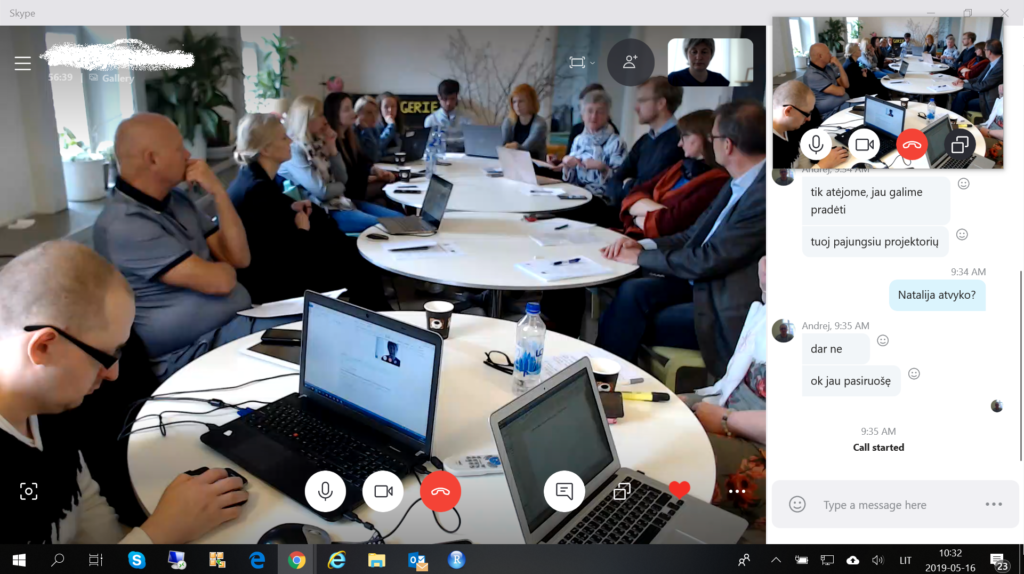
-
Would You recommend this course to Your colleagues or any other people who work in the same area as You?
I.already recommended this course to many of my friends in University and outside too as it not just helps to get more credits but also gives you a better understanding of the sustainable way of living and treating things around you and makes us a better human overall.
-
What good practices have You reckon that can be useful in Your career?
I think this course was very useful for me in every way. I plan to study more related to this field in future and to build my career in this field.
-
How would You evaluate Your engagement level during the participation in the course?
This course is very interesting and engaging. I was very happy while doing this course as I was able to understand everything very easily and efficiently. My engagement level was very high and I found it very interesting.
-
How do You think You will apply the new skills and knowledge in your work?
I will apply my knowledge which I attained from this course in a very efficient way. First, I will use this knowledge to study Masters in this field. And later I will apply the skills and knowledge at my workplace by implementing the various techniques which I gathered from this course.
Tips & tricks box
Unlike traditional, distance learning requires developing some self-organizing study habits. The most important of them are: to set a schedule and stick to a study plan, to choose a good study place, to prepare for study in advance, and to stay focused. Let’s discuss them in the context of this course.
- Set a schedule. This course is self-paced. It means that there are no deadlines. From one point such freedom lets you easier integrate these online studies to your casual live, but from other, it can totally demotivate you. To avoid this, we suggest set by your-self a learning schedule. Please, look at the course outline on the left side of the window and evaluate how much time approximately you need to learn all course, each section, each lesson, to watch each video etc. Set the starting and stopping points for your daily studying sessions.
- Choose a study place. Using a specific study place makes it easier to focus your attention on studying and avoid distractions. If you cannot dedicate some space for learning in your house, try to find it outside (for example, at a local library or school, co-working place, local cafe etc.). In any case, your working place should be out of the way of other people, enough comfortable, good lighted, and, actually, with a reliable internet connection!
- Prepare for study in advance. Take the time to get familiar with the course before you start. This will ensure you know what features the course has and how it works. Play course video to check your browser. If need installs or updates browser plug-ins such as Flash or Java. Think in advance about headphones. Check for a PDF reader, word processor and email application in your computer. If you prefer, you can download or print all course materials. Explore the list of course participants and save contacts of instructor.
- Stay focused. Turn off your phone, logout from social networks’ applications, stop email services etc. If you need a little extra help, use applications that can block distractions, so you get your work done without wasting time (StayFocusd, Freedom etc.).

Tags: beneficiaries, inspiration, Interreg South Baltic, project, project development, project management, success story
